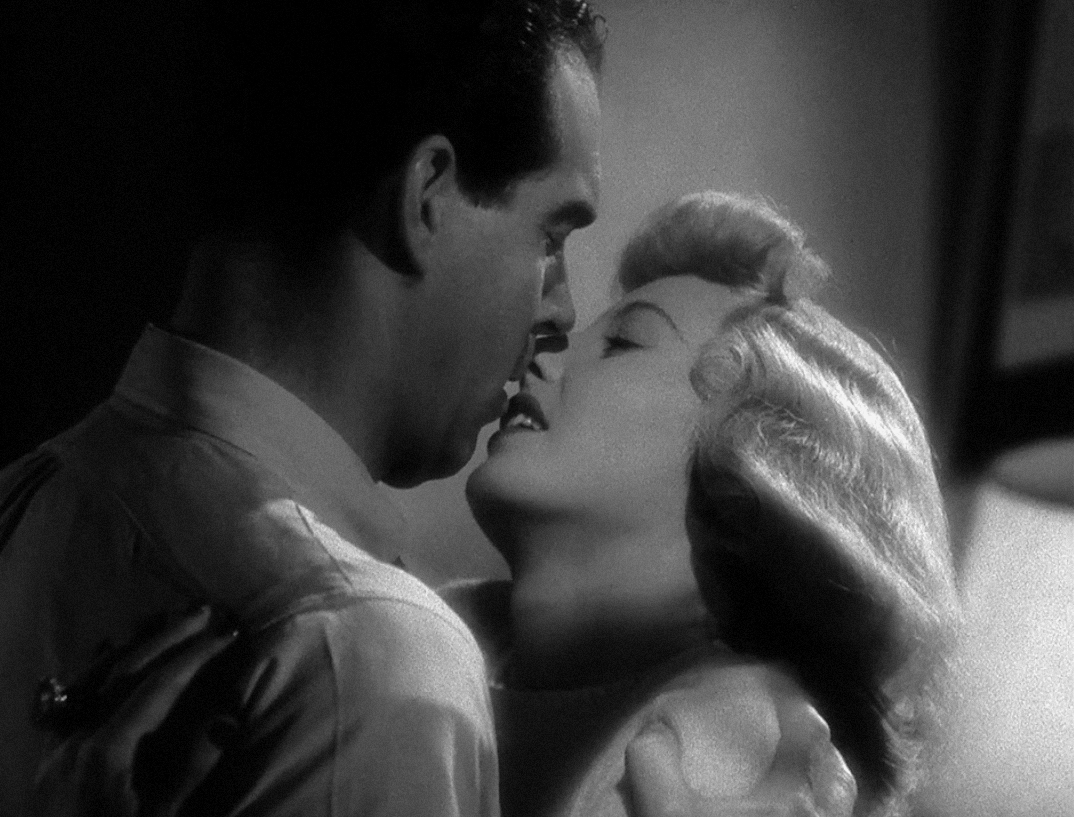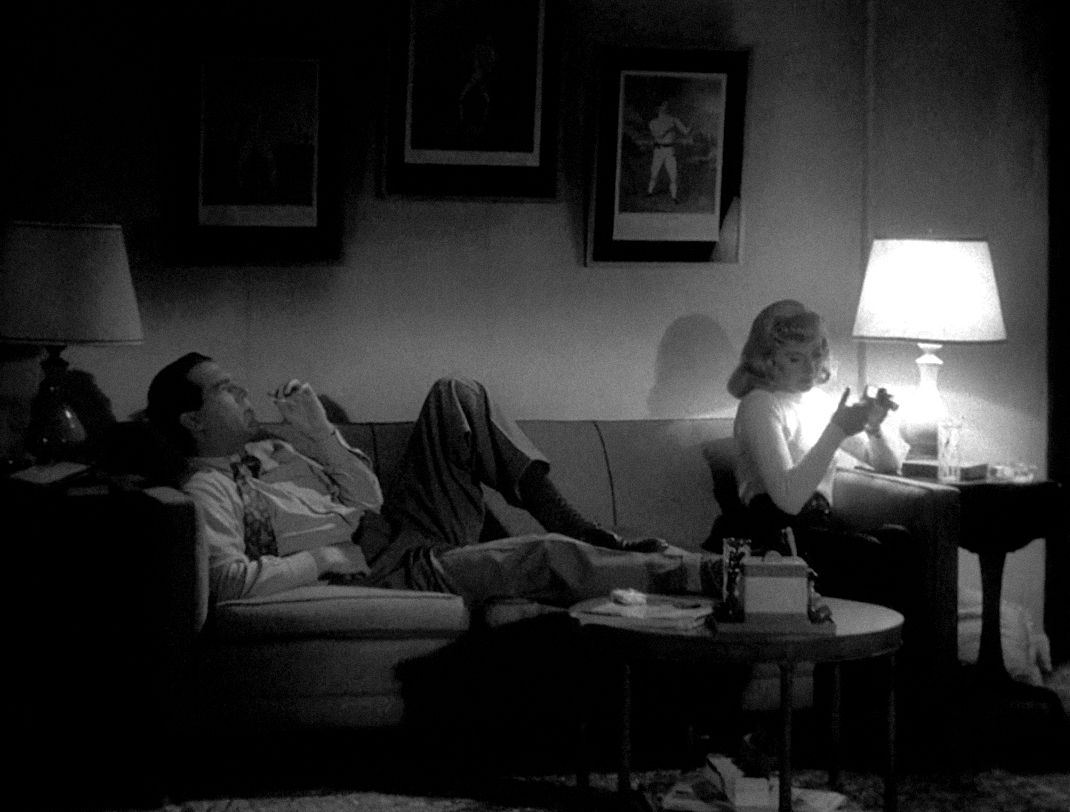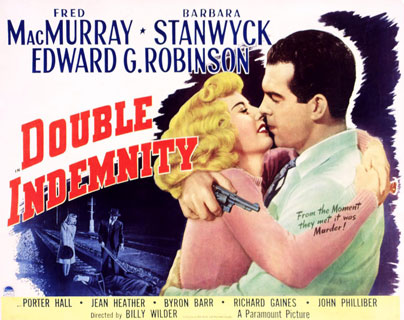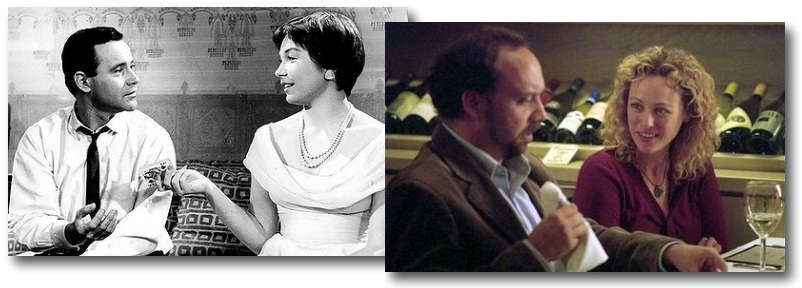Robert here w/
Distant Relatives, exploring the connections between one classic and one contemporary film.
Nice Guys Who Don't Finish At All
Consider the Romantic Comedy as made for men. In this day and age, the genre is so associated with being poor in quality and aiming only for a female demographic, you could easily forget that they used to make 'em good and with male protagonists. Of course, Hollywood making movies by men for men shouldn't be a surprise. And even today, most romantic comedies made to appeal to women are made by men (which is one small part of why they're so bad). That said, the male hero of a Romantic Comedy is quite different from the male hero of any other kind of movie. "Nebbish" is the word that comes to mind. Possibly also "schmuck." Both 1960's The Apartment and 2004's Sideways subscribe to this setup. Both Jack Lemmon's C.C. Baxter and Paul Giamatti's Miles are serious sad sacks, and both films play hard with the "nice guy finishes last" dilemma painting our heroes as upstanding men smeared merely by the actions of their peers, those cads who would seek to give all men a bad name. But the reality in both cases isn't as simple, and these films know it.
As The Apartment opens, C.C. Baxter is one of many nameless office clerks. But what sets him apart is a sly deal he's cut for himself. By lending out his apartment for the affairs and liaisons of his superiors, he's set himself up to ascend the corporate ladder with ease. The rub comes when he discovers that Miss Kubelik (Shirley MacLaine) the adorable lift operator for whom he pines has been regularly visiting his apartment with his boss, cad of cads, Mr. Sheldrake. In Sideways, Miles too is one of the nameless lonely who trips through life toward increasingly vanishing dreams. He's a writer but not quite fit for success. He's a wine connosieur but not quite enough to be a pro. When his friend Jack suggests he open a wine store, he scoffs. When Jack compliments his writing, he shrugs it off. By comparison, Jack isn't particularly talented in anything other than picking up women which he does... lots. Jack and Miles head for California wine country on a two-man Bachelor Party for Jack where Jack anticipates and finds plenty of tail. Miles, not anticipating it, finds Maya (Virginia Madsen), perhaps his perfect woman.
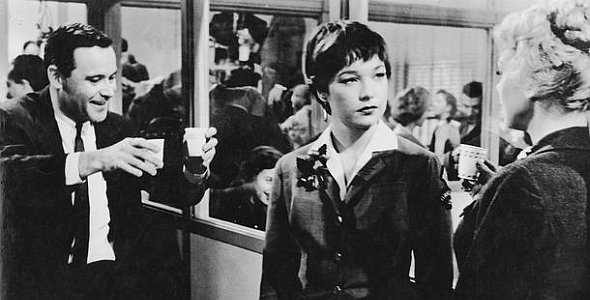
Turning a Blind Eye to the Not-So-Nice Guy
So what happens to our nice guys? Does C.C. Baxter steal Miss Kubelik away from Sheldrake? Does Miles woo Maya without complications from Jack? First they must overcome a truth of themselves that the women in their lives are sure to discover, and that we the audience slowly come to realize after their charming patheticness wears off. These two nice guys aren't all that nice, not really. Oh they're not terrible people or anything. Theirs are sins of omission. Heck, theirs are lives of omission. Miles and Baxter don't do anything bad because they don't do anything, period. If they seem like nice guys it's often only by comparison. Under the looming shadow of Jack and Sheldrake, Miles and Baxter seem perfectly gentlemanly, but they are really enablers of the behaviors of the men whose lives they seem to eye with jealousy. Not that they want to lie to and betray women. They'd just prefer to not finish last. But they've given up the race, conceded victory to the cheaters and stopped caring about who gets used up on the way to the finish line.
With both of these films ending on an ambiguous note, it can't definitively be said that these are stories of the guys who get the girl. More accurately perhaps, these are stories of guys who, with the help of the women they want, come to understand and overcome their own timid failings. They realize that their inaction is in fact approval of all the action being gotten around them. In what may be a telling difference of expectations after forty-four years of cinema, Baxter is asked by his film to make major alterations to his life and abandon his sly apartment deal. Miles isn't expected to overtly reject Jack or any element of his life, just to understand, and to make a choice. Whether the choices these men make eventually finish them ahead (or at least not last) in the race of life is unknown. But at least they come to learn the difference between being a good person who fails and being an ambivalent person who fails to try.
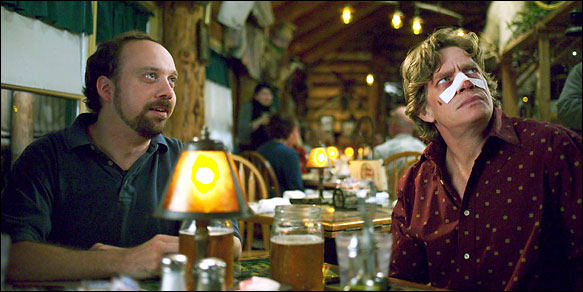
Other Cinematic Relatives: Cyrano de Bergerac (1950/1990), The Graduate (1968), Broadcast News (1987), The 40-Year-Old Virgin (2005)
 Sunday, February 9, 2014 at 5:56PM
Sunday, February 9, 2014 at 5:56PM 
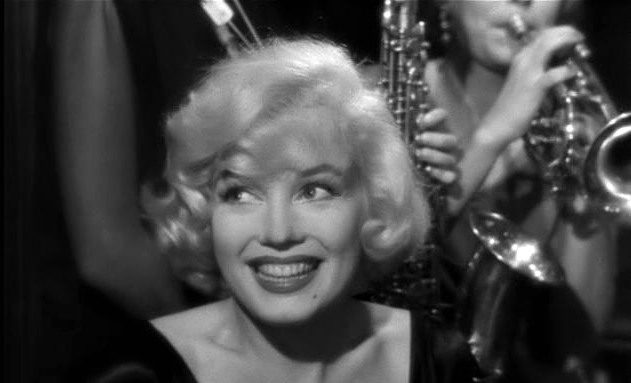 Some Like It Hot (1959) was nominated for 6 Oscars but not Picture or Actress, damnit
Some Like It Hot (1959) was nominated for 6 Oscars but not Picture or Actress, damnit


